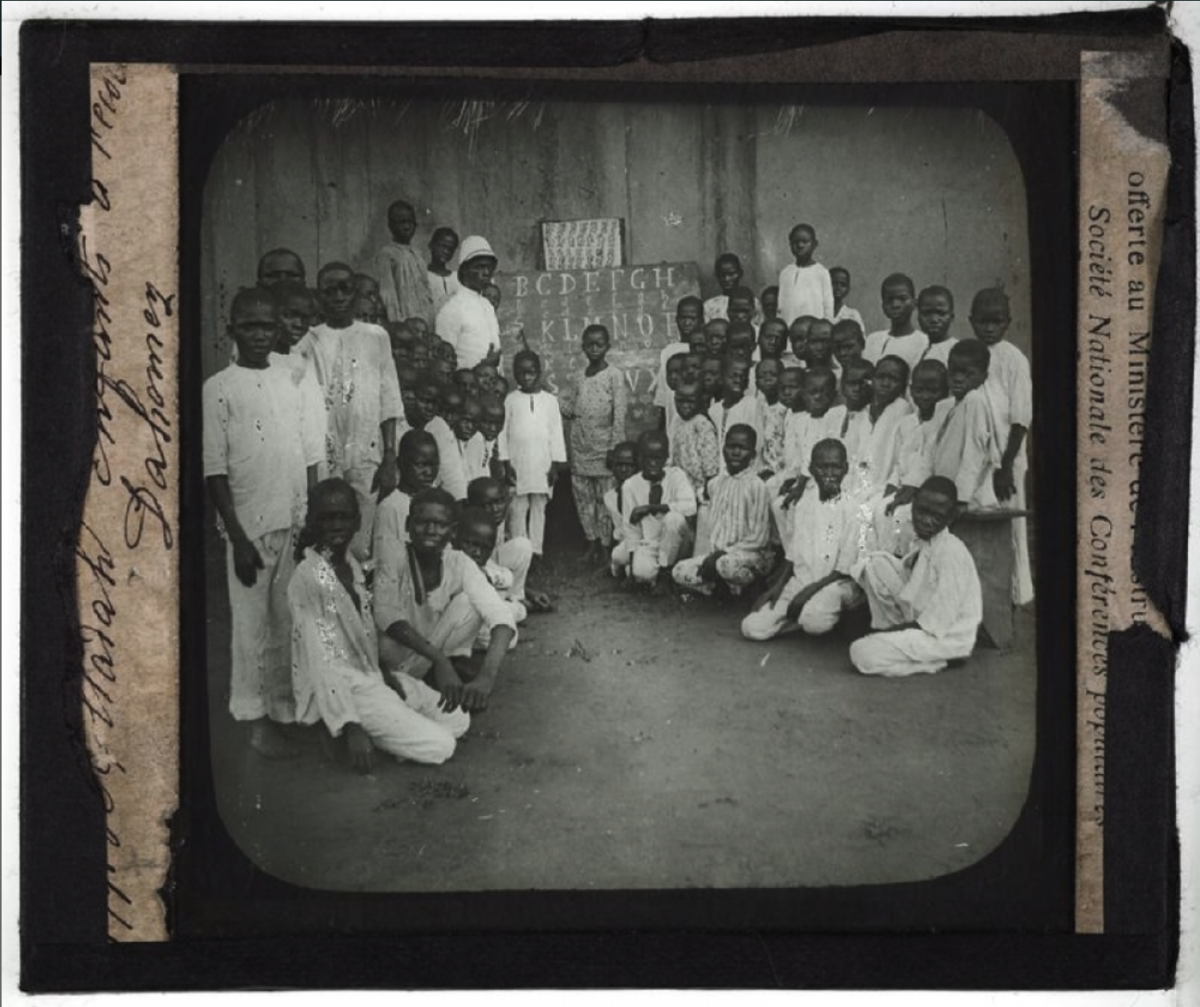History teaching and society: past and present
Research theme: Sovereignty | States, empires, international relations
TEACHING COLONIAL HISTORY
Provisional calendar 2023-2024
- 27/09/2023, 17h-19h | Marc Depaepe, Professeur émérite à la KU Leuven
Sur l'histoire de l'enseignement au Congo belge et sur la place du Congo dans l'enseignement belge (1908-1960) - 13/12/2023 | Sylvie Thénault (CNRS, Centre d'histoire sociale des mondes contemporains)
La colonisation et la guerre d'indépendance algérienne : un enjeu pour l'enseignement et la formation - 10/01/2024 | Florence Wenzek, Université Lyon 2
Certaines d'entre nous ont du savoir, mais nous voulons en acquérir davantage. Voix tanganyikaises pour des filles et des femmes (1939-1961) - 07/02/2024 | Isabelle Surun, Université de Lille
Les zones grises de la colonisation : le pluralisme juridique en situation coloniale - 13/03/2024 | Fatima Besnaci, Université Paris-Sorbonne
Le fait colonial au camp de Rivesaltes - 03/04/2024 | Vincent Marie, Université Montpellier 3
Cases-mémoire, images-mémoire(s) de la colonisation dans la bande dessinée - 24/04/2024 | Anne Lafont, Directrice d'études, EHESS
Qu'est-ce que l'image coloniale ? - 15/05/2024 | Marie-Albane de Suremain, INSPE-UPEC, CESSMA/CRHEC
L'Afrique subsaharienne dans l'enseignement du fait colonial : entre invisibilisation, stéréotypes et ferments de renouvellement - 05/06/2024 | Guillaume Mazeau, Centre d'histoire du XIXe siècle, Univ. Paris 1 Panthéon-Sorbonne, chercheur invité à l'IHTP
Le fait colonial au secours d'une histoire et d'un enseignement fatigués : enseigner l'histoire de la Révolution française, hier et aujourd'hui
Calendar 2022-2023
- 28/09/2022 | Vincent Bervas (ONACVG) et Kamel Chabane (Académie de Paris)
Enseigner la guerre d'Algérie avec des témoins. - 09/11/2022 | Emmanuel Saint-Fuscien, Directeur d'études à l'EHESS
Le hors programme imposé ? Transmettre la guerre en salle de classe en janvier et novembre 2015. - 07/12/2022 | Vincent Duclert, Chercheur au Centre Raymond Aron (CESPRA, EHESS-CNRS), enseignant à Sciences Po, président de la Commission de recherche sur les archives françaises relatives au Rwanda et au génocide des Tutsi (2019-2021)
Enseigner les génocides et les processus génocidaires. Guerre d'extermination, guerre dans la guerre, guerre aux génocides, XIXe-XXIe siècle. - 04/01/2023 | Laurent Carroué, Géographe, Inspecteur général - IGESR, directeur de recherche à l'Institut Français de Géopolitique (Université Paris VIII)
Enseigner la géopolitique. Approches conceptuelles et épistémologiques. - 01/02/2023 | Valérie Opériol, Formatrice en didactique de l'histoire à l'Université de Genève
Enseigner l'histoire des guerres sous l'angle du genre. - 08/03/2023 | Nicolas Lepoutre, Lycée Guy de Maupassant de Colombes
Enseigner le conflit palestinien dans le secondaire. - 05/04/2023 | Brigitte Morand, Maîtresse de conférences en sciences de l'éducation, didactique de l'histoire, INSPE Clermont-Auvergne / Laboraoire ACTé, Université Clermont Auvergne
La guerre froide dans les manuels scolaires français d'hier et d'aujourd'hui. - 10/05/2023 | Vincent Marie, Docteur en histoire contemporaine et agrégé d'histoire-géographie. Université de Montpellier 3.
Traits de mémoire. Bandes dessinées et Seconde Guerre mondiale. - 07/06/2023 | Paul Vo-Ha, Université Paris I
Enseigner l'histoire des guerres de l'époque moderne dans le secondaire et le supérieur : comment transmettre les acquis de six décennies de recherche ?










